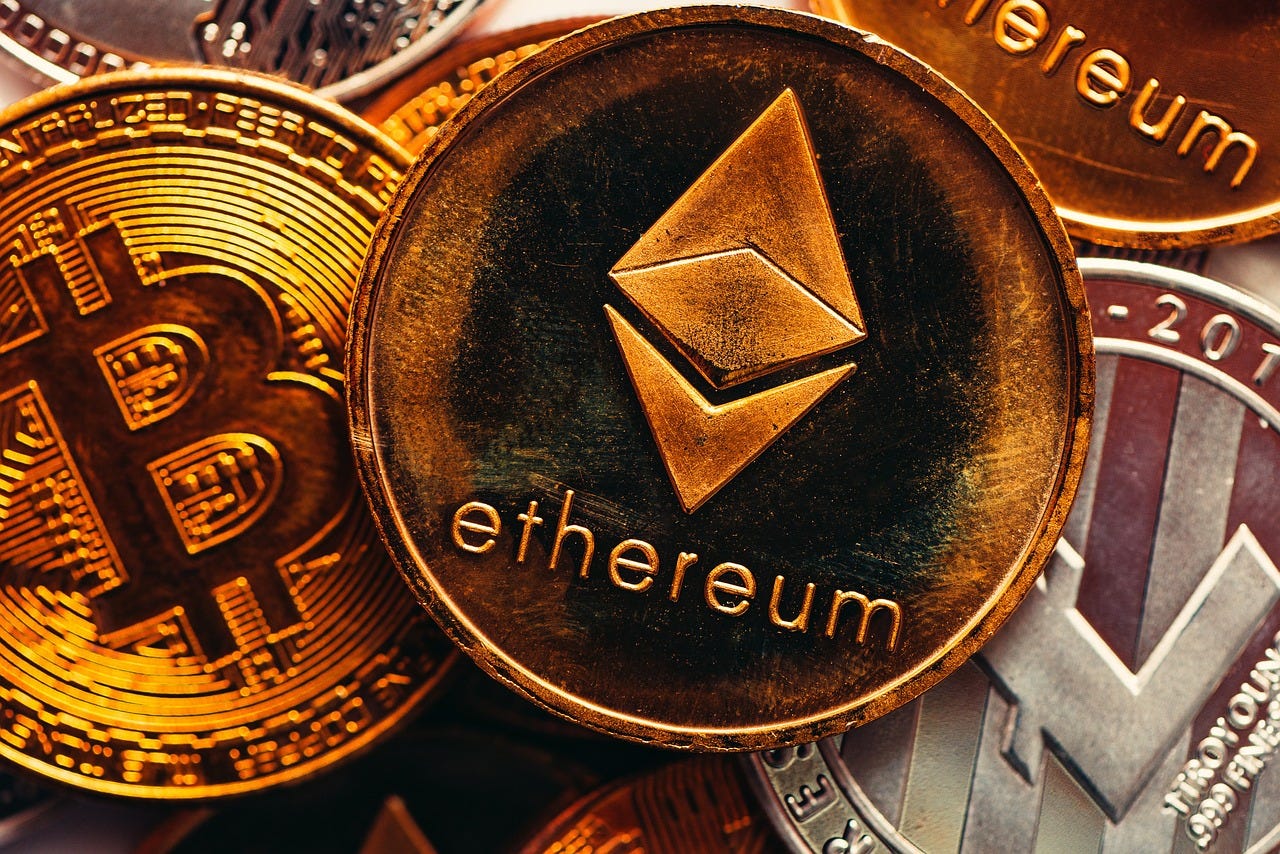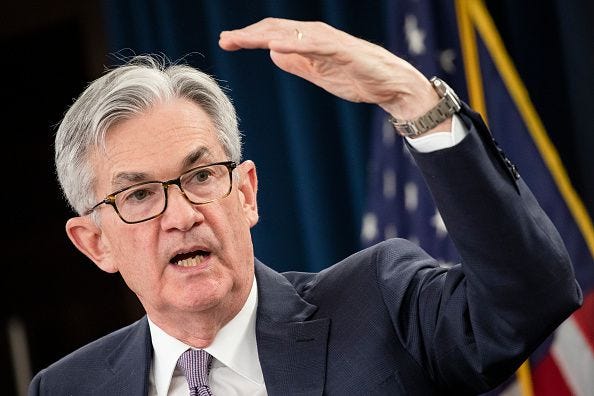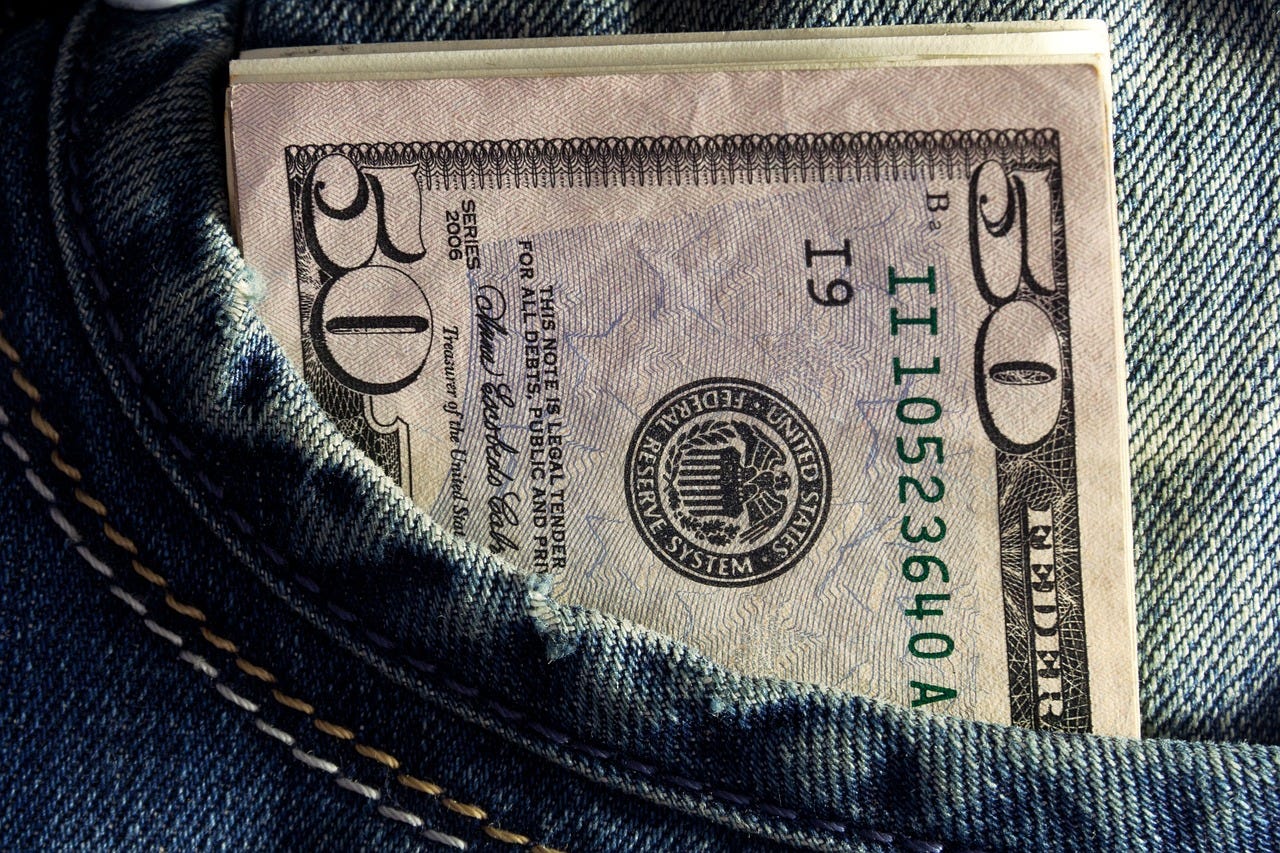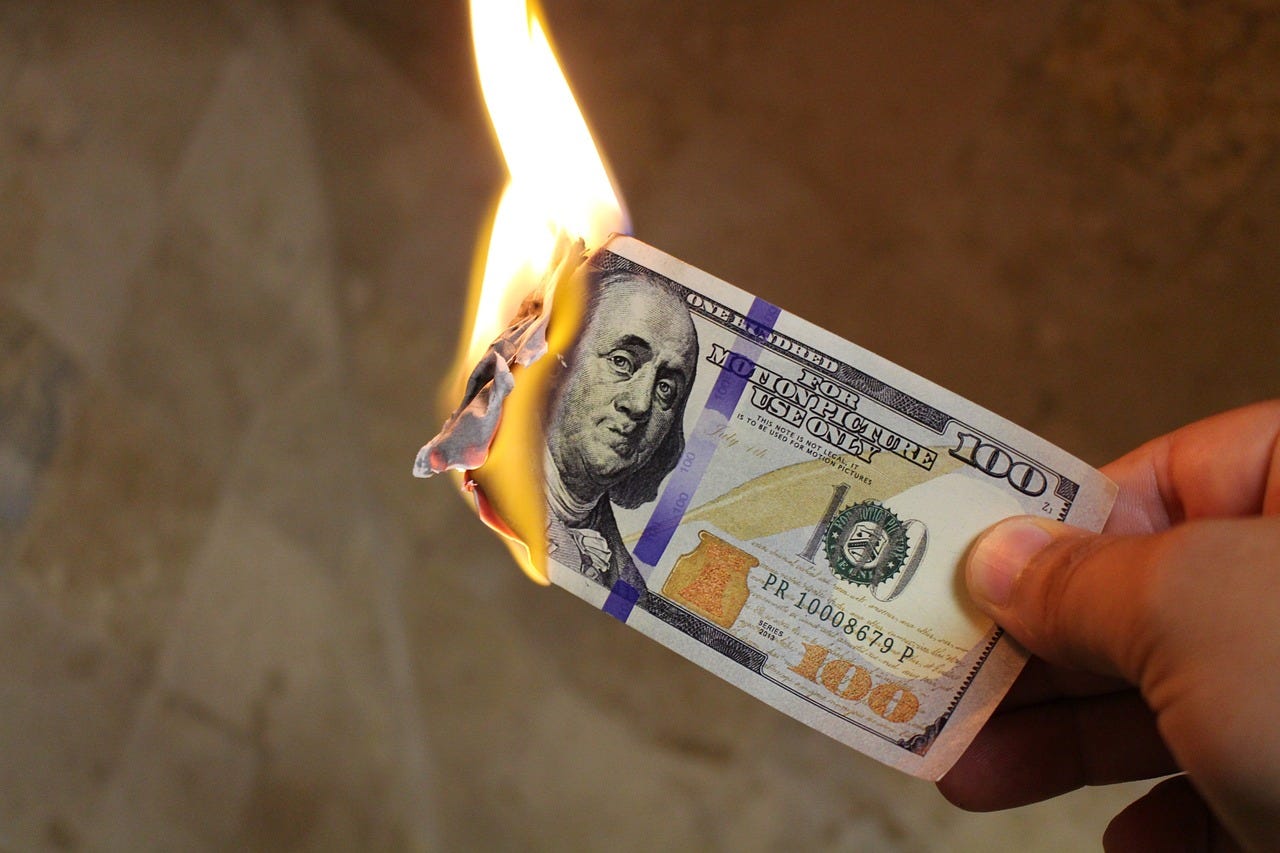11 Financial Market Predictions For 2024
The shine on JEPI disappears, King Vanguard, inflation remains a problem and 8 more ideas for the new year!
This is the time of year where everybody starts making their predictions for what’s going to happen in the new year. I’m no exception. Not that I expect all of my predictions will come true or claim I have a crystal ball, but I do think it’s useful to try to set up a game plan for 2024.
I think one way a lot of these predictions go astray is there's too much focus on the present. We know what conditions are like now and many predictions tend to be more short-term in nature as opposed to what will happen over the next 12 months. Things could change tremendously at any point throughout the year and there will probably be at least one or two events that come out of nowhere to affect the economic environment.
But that's what makes these fun I suppose. Some of my predictions will be ETF-specific. Some will focus on the markets or the economy. All will be relevant to the path of returns in 2024.
Enjoy!
A Spot Bitcoin ETF Gets Approved & All Filings Get Approved At Once
Let's start with a near-certain winner right off the bat!
If you haven't been following the stellar work on James Seyffart and Eric Balchunas on Twitter covering the bitcoin ETF saga, you really should be! These guys have been following and documenting every twist and turn (and there have been a lot of them). Based on what they've seen through filings, conversations with the SEC and updated amendments, they're saying there's a 90% chance we'll get a bitcoin ETF approval, probably sometime in January when the SEC needs to make a decision on the first filing deadline.
The only real question, in my opinion, is whether they approve one first (the ARK 21Shares Bitcoin ETF (ARKB) has an SEC deadline of January 10th) and then approve the others later or if they just issue a blanket approval all at once and just let the free market reign. It seems more likely that it's the latter.
The real prediction might be which bitcoin ETF issuer gains the most assets. BlackRock certainly has the scale. ARK scores big in media presence. It's probably one of those two if I had to guess.
A Spot Ethereum ETF Gets Approved
This one’s a little less clear, but I have to believe that if the SEC approves a spot bitcoin ETF, a spot ethereum ETF can’t be far behind.
Bitcoin and ether, of course, have very different applications even though they both fall under the cryptocurrency umbrella. Bitcoin is designed to be more of a traditional currency in that it can be used to buy & sell goods (the Papa John’s pizza purchase story is an all-timer) or send money to someone. Ether is built more for the business side of things and could be used for things, such as business-to-business smart contracts.
The only way to get bitcoin exposure in the ETF marketplace today is through bitcoin futures contracts. The first of these products, the ProShares Bitcoin Strategy ETF (BITO) is a little over two years old, but the first ether futures ETF debuted just a few months ago. The path of ETF launches here leads me to believe that a spot ether ETF will probably debut well after a spot bitcoin ETF does. Still, if a spot bitcoin ETF gets approved, a spot ether ETF is probably inevitable. I think it definitely happens in 2024.
The Best Performing Sector Will Be Healthcare
2023 was all about tech, mega-caps and growth (and tech-adjacent businesses, such as the magnificent 7 stocks). The tech and communication services sectors are both up more than 50% year-to-date and consumer discretionary is up 40%. Beyond that, the next best-performing sector is industrials, which is up a comparatively modest 17%. Healthcare and energy are virtually flat on the year. Consumer staples and utilities are in the red. This has been a very narrow rally fueled by a very specific set of conditions that have benefited a relatively small set of stocks.
I think conditions will change significantly in 2024 along with equity market leadership. Despite investors getting excited today about Fed rate cuts, it’s important that those usually occur in the lead-up to recessionary conditions. This time around will likely be at least a little different because the Fed will be lowering because inflation is coming back under control as opposed to specific economic weakening. If you look past the headline GDP growth numbers and unemployment rate, there are clear signs of weakness already. High mortgage rates have frozen the housing market and over-construction to address the current housing dearth will likely swing the pendulum too far in the other direction, leading to a housing bust. Manufacturing is still in contraction, Europe is probably already in recession and the Chinese economic situation looks increasingly ugly. Corporate bankruptcies are also on the rise.
I suspect that deteriorating conditions will give new life to defensive issues, maybe not quickly in 2024, but eventually. Healthcare has been a sector that has consistently done well in economic slowdowns and I believe it will again here.
The Worst Performing Sector Will Be Consumer Discretionary
Part of this would be a natural follow-up to this sector’s 40% gain in 2023, but a bigger part is due to my belief that the consumer is in worse shape than the economic figures are letting on.
If you look at early holiday shopping season numbers or just month-over-month retail sales numbers, in general, consumer spending appears to still be growing at a healthy clip. What’s less apparent is that the use of “buy now, pay later” plans has increased significantly in 2023 as is the amount of spending that’s being done on credit. If consumers are just buying more and more things with money that they don’t have, that’s simply unsustainable and is going to lead to a wide array of negative consequences down the road.
Nike’s recent revenue warning is an indication that some areas of the retail market may be having trouble. Retailers have already been warning of weakening consumer behavior. The Consumer Discretionary Select Sector SPDR ETF (XLY) is trading at 26 times forward earnings, which is well above its historical average and closer to where it was during the post-COVID recovery in 2021.
If we trend towards recession in 2024, I think this could be one of the hardest sectors to fall.
Vanguard Passes BlackRock As The Largest ETF Issuer
As it stands currently, Vanguard is about $200 billion behind ($2.5 trillion in AUM for BlackRock vs. $2.3 trillion for Vanguard). To provide some perspective, Vanguard has taken in around $50 billion more in net new money than BlackRock so far for 2023.
Making up $200 billion in assets in a single calendar year is unlikely, but not impossible. Vanguard has been steadily gaining market share for years and it’s not out of the question that its reputation and roster of ultra-cheap ETFs finally make a run at the crown.
JEPI Experiences Net Outflows
The JPMorgan Equity Premium Income ETF (JEPI) became a monster in 2022. At the beginning of 2021, it had a mere $170 million in assets. With rates at record lows, high inflation coming and publishing a yield that sometimes topped 8%, it blew up to nearly $6 billion in assets by the end of the year despite the fact that it underperformed the S&P 500 by 7%.
2022, however, was the year it all came together. An inflation-fueled bear market in equities brought defensive and low volatility themes, such as JEPI’s covered call strategy, back into favor. Income investors salivated at JEPI’s now double digit yields that occasionally touched 12-13%. It also outperformed the S&P 500 by 15% during the year and assets blew up again to more than $17 billion.
2023 has been similarly successful, but it looks like the momentum is running out. Yes, the fund has grown to more than $30 billion now and it has the 8th largest net inflow year-to-date of $12.8 billion, but it’s back to underperforming the S&P 500 by a wide margin (18% as of December 28th).
More than that, net inflows have essentially turned flat. After taking in more than $1 billion in each of the first six months of 2023, JEPI is at -$54 million in net flows for December thus far, which would mark the fund’s first negative monthly net flow in its 3 1/2 year history.
I think this momentum will continue into 2024. Covered call strategies tend to underperform the broader markets over longer periods of time because share price upside is capped. The ARK Innovation ETF (ARKK) experienced a similar boom/bust cycle when its performance began to lag and it still has yet to recover (it’s lost $570 million in net flows in 2023 despite being up 75%). I think a similar future is ahead for JEPI.
The Fed Makes 3 Interest Rate Cuts
This doesn’t feel like much of a bold prediction given that the Fed’s December dot plot forecasted three rate cuts in 2024. But this is a significant deviation from the 6-7 rate cuts that the futures market is currently expecting.
Given that the core inflation rate is still at 4% year-over-year (and around 3.3% annualized over just the past few months) and the Fed has been notoriously stubborn in shifting its narrative to a more dovish tone, I’m having a lot of trouble imagining that Powell is going to cut rates at virtually every meeting this coming year starting in March. Up until a few weeks ago at the December meeting, Powell had consistently said that inflation is still a threat and more restrictive conditions for a longer period of time might be necessary to bring inflation sustainably back to the 2% target.
If global conditions slowly deteriorate throughout the year, I can see the Fed cutting a few times in 2024, but not nearly to the level that the market is expecting.
Biden Wins A 2nd Term On Big Spending Promises
Politics isn’t really my specialty, but I do know one thing. Politicians love to make big promises in order to secure votes.
I’m going to completely stay away from what’s happening politically and legally in this race and stick just to the financial implications. $1 trillion-plus annual budget deficits are expected to continue at least through the end of this decade regardless of who’s in office. There are already a number of big ticket items on the agenda and, even though the means for paying for some these things is still very much in question, I suspect that Biden will continue to endorse big projects/goals and that will be enough to secure himself a second term.
The 10-Year Treasury Yield Finishes The Year At 3%
This is admittedly pretty tough to predict because there are so many variables that go into it. It’s a little strange to think that, given the path of long-term interest rates this year, the 10-year Treasury yield is currently at the exact same point it started the year at - 3.83%! Along the way though it’s gone from 3.39% to 4.06% back down to 3.30% up to 4.99% and back down to its current level. That’s a lot of volatility for a single year!
I suspect the path back to a 3% 10-year yield will be a function of two things - a steady easing of monetary policy conditions by the Fed and the onset of the flight to safety trade, possibly in the 2nd half of the year. If the markets get the sense that economic strength has run out and the chances of a recession start growing, investors might start fleeing to Treasuries for safety, not just as a yield play.
Bitcoin Miner & Blockchain ETFs Struggle Mightily
This group has been the single best performer this year with 8 non-leveraged ETFs sitting on year-to-date gains of more than 200%. If a bitcoin ETF gets approved early on in 2024, it stands to reason that the demand and price for bitcoin could surge along with it. That should be a good thing for bitcoin miner and blockchain stocks, right? Maybe not.
Part of the reason that this group has taken off in 2023 is that ETF investors have been using them as a proxy for bitcoin. Yes, bitcoin futures ETFs already exist and provide a relatively tight correlation to spot bitcoin, but they’ve only attracted about $2 billion and haven’t turned into the mega-product that some thought they would. The stocks have been more exciting and the huge returns have only helped.
But if a spot bitcoin ETF shows up in January and investors can own the real thing through an ETF, is there a need to own bitcoin miners or blockchain stocks as a proxy anymore? We saw somewhat similar behavior a couple decades ago when gold ETFs debuted. Investors turned away from gold miner stocks as a proxy to own the actual metal. I think there’s a chance that prices hold up better this time around, but a big source of demand for these stocks could disappear quickly.
Inflation Finishes The Year At 3%
As I mentioned before in talking about Fed rate cuts, I don’t think inflation (especially on the core side) is coming down as quickly as the markets want to believe it is. If the labor market and wage growth stay at current healthy levels, there’s not really an impetus for inflation to head sustainably back to the 2% level yet. We probably need a bust-like scenario in housing or credit or something like that to see a big disinflationary pulse. Even then, I think core inflation is a slow-moving train and it could be 2025 before we start getting back to 2% inflation.
















I like this! Some logical conclusions but plenty to ponder.
I'm hopeful for the healthcare sector too. In addition, to the reasons listed here, some amazing innovations are coming in healthcare, and companies should be able to profit from them.
Energy sector especially hydrogen and oil should deliver yields and share price improvement in 2024. First Trust Energy FXN.